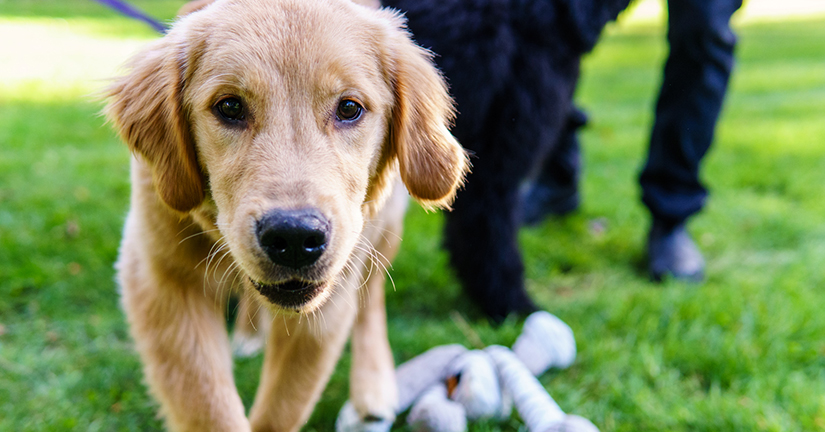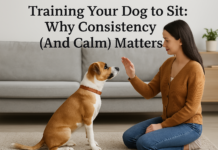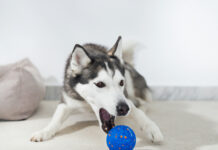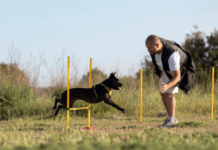Last Updated on May 22, 2024 by Dogs Vets
Being a dog owner in Madison and dealing with a reactive pup can be somewhat problematic. Therefore, finding the right trainer can be a game-changer and finally let you have a breather.
Reactive dogs may lunge, bark, or growl in response to certain stimuli, which can be stressful for both the dog and the owner.
However, with the right training, reactive behaviors can be managed effectively, enhancing your bond with your pet and ensuring both of you enjoy more peaceful walks and social interactions. Discover more here https://www.nytimes.com/how-to-find-a-qualified-dog-trainer.html.
But, before diving into the search for a trainer, it’s important to understand what reactivity is and what it isn’t. Reactivity is often confused with aggression, but they are not the same. Reactivity is an overreaction to specific stimuli, such as other dogs, humans, or noises.
It’s usually driven by fear, frustration, or anxiety rather than a desire to harm. Understanding this will help you communicate effectively with potential trainers about what your dog needs.
Here’s what you need to know:
Identifying Your Goals
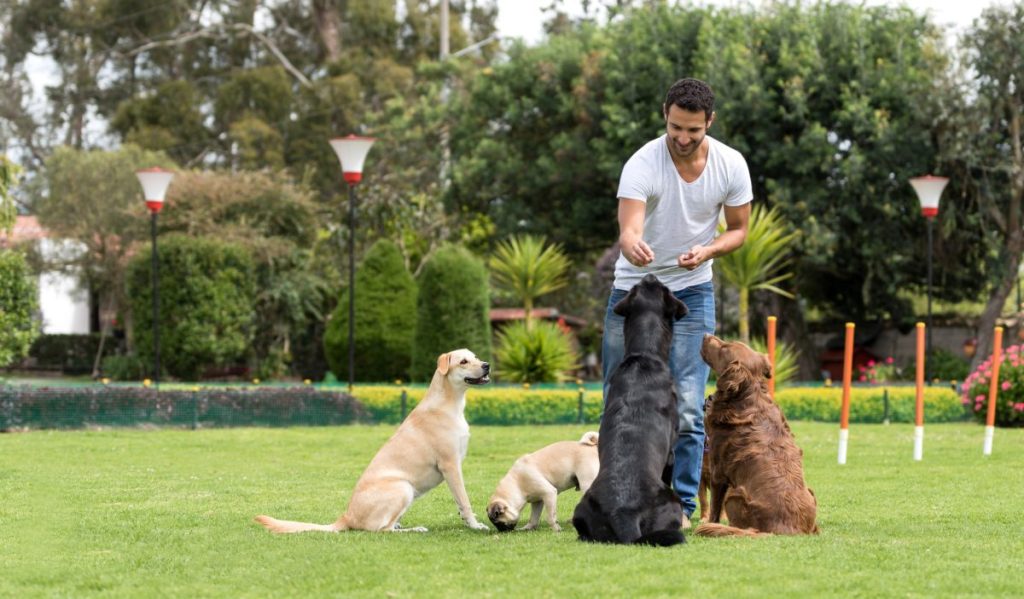
Before you start looking for a trainer, clearly define what you hope to achieve through training.
Are you looking to ease your dog’s anxiety during walks, or do you need help managing your dog’s reactions at the vet or in crowded places? Setting clear goals will help you find a trainer who is experienced in addressing specific issues and can customize their approach to meet your objectives.
Researching Local Trainers
Madison is home to many talented dog trainers, but not all will have specific experience with reactive dogs. Start your search by looking for trainers who specialize in behavior modification and specifically mention reactivity on their websites.
Check out local dog training centers, ask for recommendations from your vet, local pet stores, or dog owner groups on social media platforms.
Evaluating Qualifications and Methods
Once you have a list of potential trainers, evaluate their qualifications. Look for certifications from reputable organizations like the Certification Council for Professional Dog Trainers (CCPDT) or the International Association of Animal Behavior Consultants (IAABC). These certifications indicate that the trainer has undergone rigorous training and adheres to high standards.
Equally important is the trainer’s approach to behavior modification. Positive reinforcement is the most recommended method for training reactive dogs. It focuses on rewarding desired behaviors rather than punishing unwanted ones, which can exacerbate fear and anxiety. Ensure that the trainer’s methods align with modern, science-based, and humane training practices. Click here for more!
Reading Reviews and Seeking Testimonials
Hearing from other dog owners can provide insights into a trainer’s effectiveness and manner. Read online reviews on platforms like Google, Yelp, or Facebook.
Don’t just look for high ratings, but also read the comments to see if owners of reactive dogs have seen improvements. Additionally, trainers should be able to provide testimonials or case studies, and they might allow you to contact past clients for direct feedback.
Meeting Trainers and Observing Classes
Many trainers will offer an initial consultation to discuss their approach and get to know you and your dog. This meeting can be crucial in determining whether they are a good fit for your needs. It’s also a chance to ask about their experience, methods, and how they plan to help you achieve your goals.
If possible, ask to observe a training session. Seeing the trainer in action, especially with reactive dogs, can give you a clear idea of how they handle these challenges in real-time. Look for a trainer who remains calm, patient, and maintains a safe environment for all the dogs and owners involved.
Considering the Logistics
Practical considerations are also important. Look at the location of the training sessions, whether they are group classes or one-on-one sessions, the schedule, and the cost. Make sure these aspects fit your lifestyle and budget. Remember, dealing with reactivity is often not a quick fix and might require ongoing support.
Embracing the Journey with Patience and Persistence
Embarking on a training program for a reactive dog is a journey that requires patience and persistence from both you and your trainer. Behavior modification doesn’t happen overnight, and there can be ups and downs along the way.
It’s important to stay committed and keep a positive outlook, celebrating small victories as your dog makes progress.
A good trainer, like Paige Wheeler, will encourage you to be patient and help you set realistic expectations. They will provide ongoing support and adjust strategies as needed, ensuring that you and your dog continue to move forward. Remember, each step your dog takes towards overcoming their reactivity is a huge leap towards a more harmonious and enjoyable life together.
Building a Relationship with Your Trainer
Finally, the right trainer for your reactive dog should be someone you trust and feel comfortable working with. They should be supportive and communicative, making you feel involved in the training process.
A good trainer will not only work with your dog but will also teach you how to effectively handle and continue training outside of sessions.
Fact Check
We strive to provide the latest valuable information for pet lovers with accuracy and fairness. If you would like to add to this post or advertise with us, don’t hesitate to reach us. If you see something that doesn’t look right, contact us!
